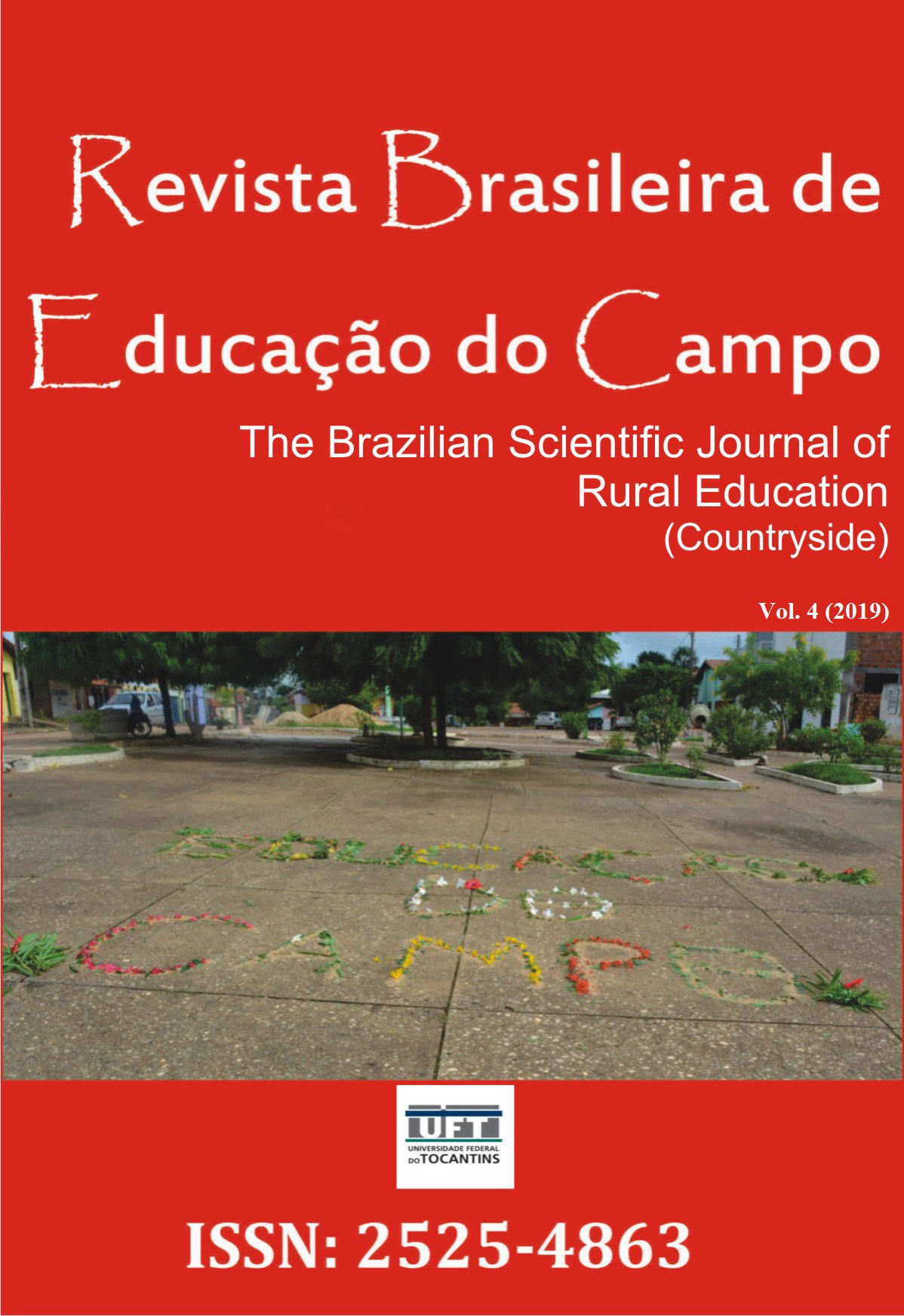Thematic Dossier: 50 years of Alternating Cycle in Brazil: what national and international research says
DOI:
https://doi.org/10.20873/uft.rbec.e8135Abstract
The year 2019 marks a milestone in Brazilian Education, particularly in training experiences in Rural Education, on the occasion of the celebration of the 50th anniversary of Alternating Cycle Education. Created in France and brought to Espírito Santo by a Jesuit priest, it was developed by peasants who considered the different realities of our country, as an educational counter-hegemonic possibility, mixing school training with work experience, sense of belonging to the land and cultural identities. From this perspective, the Association of Family Movements for Rural Education (AIMFR) and the research groups CNPq / UFES Field Cultures, Partnerships and Rural Education, and the International Research on Dual-Alternating Cycle System at Sherbrooke University, Canada, propose to the Brazilian Journal of Rural Education the creation of a file. This is an opportunity to gather, in this important journal, a plurality of discussions and investigative results that emerge from the praxis of teachers and researchers, working with Alternating Cycle Education in Brazil, Canada, Spain, Cameroon, Italy and France. We believe this to be a chance for reflection, problematization and sharing of good experiences, considering the numerous challenges of the current scenario. It is not a contemplative article, but a reflective and problematic one, with a living and dynamic exercise, produced by historically situated subjects, who place themselves in the field of resistance, thus thinking about contexts and rising possibilities. In this sense, the research now shared emerges from the most diverse experiences - from basic to higher education - revealing us the transgressor potential of Alternating Cycle. To recognize this diversity of practices is also to affirm that Alternating Cycle Education, created in Brazilian lands 50 years ago, is today part of the Brazilian Education Heritage and, as such, figures in law and public policies. However, this historical and social journey also poses challenges that arise in the very movement of transformation of society and ways of life, work and production. Facing such challenges and keeping on with the struggle are central flags in the production of new and different meanings for Training by Alternating Cycle, without diverging from its pillars, its mediations and/or educational instruments and, above all, while strengthening its political emancipation, transforming agent of realities and their subjects. For this, we thank the Brazilian Journal of Rural Education for granting us this space which, in turn, translates into an action of visibility of the knowledge’s and practices of Alternating Cycle Education. We chose to organize the 26 texts in three big thematic groups: firstly, articles that talk about the history of alternating cycle education and its intertwining with field education; secondly, epistemological principles and analysis of mediations or pedagogical instruments, with texts that specifically discuss alternating cycle education in the training of educators-teachers-monitors in the field; and finally, we bring researches about different experiences in basic school education and others. What national and international researches on Alternating Cycle Education in these last 50 years of history show us, is an invitation to the knowledge produced by subjects who act, reflect and problematize praxis through scientific research.
Downloads
References
Como citar este Editorial / How to cite this Editorial
APA
Puig-Calvó, P., Gagnon, C., & Gerke, J. (2019). Dossiê Temático: 50 anos da Alternância no Brasil: o que dizem as pesquisas nacionais e internacionais. Rev. Bras. Educ. Camp., 4, e8135. DOI: http://dx.doi.org/10.20873/uft.rbec.e8135
ABNT
PUIG-CALVÓ, P.; GAGNON, C.; GERKE, J. Dossiê Temático: 50 anos da Alternância no Brasil: o que dizem as pesquisas nacionais e internacionais. Rev. Bras. Educ. Camp., Tocantinópolis, v. 4, e8135, 2019. DOI: http://dx.doi.org/10.20873/uft.rbec.e8135
Downloads
Published
How to Cite
Issue
Section
License
Proposal for Copyright Notice Creative Commons
1. Policy Proposal to Open Access Journals
Authors who publish with this journal agree to the following terms:
A. Authors retain copyright and grant the journal right of first publication with the work simultaneously licensed under the Creative Commons Attribution License that allows sharing the work with recognition of its initial publication in this journal.
B. Authors are able to take on additional contracts separately, non-exclusive distribution of the version of the paper published in this journal (ex .: publish in institutional repository or as a book), with an acknowledgment of its initial publication in this journal.
C. Authors are permitted and encouraged to post their work online (eg .: in institutional repositories or on their website) at any point before or during the editorial process, as it can lead to productive exchanges, as well as increase the impact and the citation of published work (See the Effect of Open Access).















